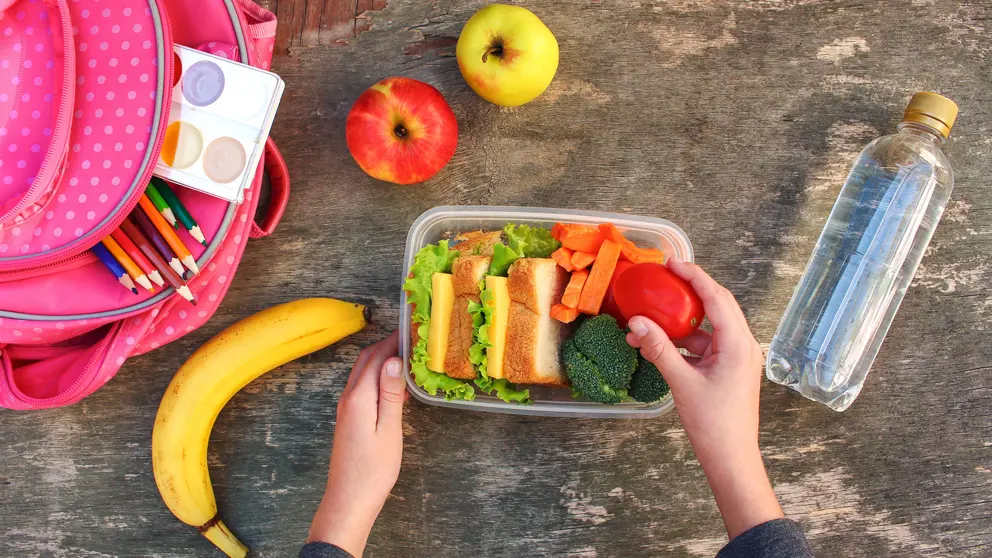This school year, the pandemic has taught us not only about physical health, but also the importance of healthy eating, mental health, social connection, and learning for our kids. So, what is one ingredient needed for all of these, and overall student well-being? Healthy school food.
That’s why Heart & Stroke is a member of the Coalition for Healthy School Food, a group of over 120 organizations advocating for a national school food program. Research shows that forming healthy eating habits at a young age can reduce the risk of heart disease and stroke throughout life. Nourished kids learn and behave better. Drinking water and eating a variety of nutrient-rich vegetables, fruit, whole grains, and protein foods support a healthy immune system. To top it off, growing evidence shows connections between healthy eating and positive mental health, and eating together helps us feel more connected (even when we are two metres apart).

COVID-19 has shown that school food programs are an essential service.
Yes, we are still in a pandemic. But we can prioritize healthy school food in ways that lower the risk of virus transmission, and support overall student health and wellbeing. School food programs are “thinking outside of the box” to provide food to all students, and teach healthy habits that can last a lifetime. Here are some ideas as programs reopen:
- Relying on packaged foods is not necessary and may pose long term environmental and nutritional concerns. Packaged foods may be a convenient option as programs resume, but moving forward, we need to focus on sustainable and affordable solutions. Student meals can be wrapped in food grade paper and then recycled. Food can also be distributed in bins and containers, provided that they are cleaned and sanitized before and after each use.
- School food programs can serve minimally processed foods that are simple to prepare. For example, local cherry tomatoes, snap peas, and apples simply need to be washed under cold running water, and can be served with whole grain pitas or bagels, and cheese.
- Even when volunteers are not permitted in schools, they may still be able to do simple food preparation in inspected kitchens in other community settings. For example, volunteers washing and preparing local produce can help with the “farm to table” connection, modelling importance of locally grown food.
- We can think beyond breakfast and consider options such as minestrone and other tasty, nutritious vegetable-bean soups which are cooked, and pose little food safety risk. These foods can be heated to suitable internal temperatures and any leftovers cooled quickly and refrigerated.
- If there are restrictions on students helping with food preparation this year, schools can consider other ways to promote food literacy and involve families, such as cooking challenges at home, or planting vegetable seeds to grow and eat at home.
Food handling and safety training can help reduce the risk of foodborne illness for everyone. When preparing, serving, and eating food, normal food safety procedures such as supply and storage, washing produce with water, cleaning and sanitizing of utensils and food contact surfaces are all important. When considering COVID-19, food served or provided via bins may also pose fewer risks than buffets, or options involving shared utensils. Physical distancing of volunteers, staff, and students is also important. Hand hygiene before and after eating or handling food greatly reduces the risk of foodborne illness and COVID-19 transmission.
Outdoor learning and growing local food are also important when teaching students about food literacy and healthy school food. Not only is there a lower risk of virus transmission in the great outdoors, but nature and gardening can teach valuable lessons about social studies, physical education, geography, language, science and mathematics. Not to mention, there are mental health benefits linked to gardening and time outdoors.
We can work together to support the overall health and well-being of our kids. COVID-19 has shown that school food programs are an essential service and children and their families need school food programs. Let’s make healthy school food a key ingredient.
Related information
Dr. Rosana Salvaterra is a medical officer of health at Peterborough Public Health in Peterborough, Ont.

